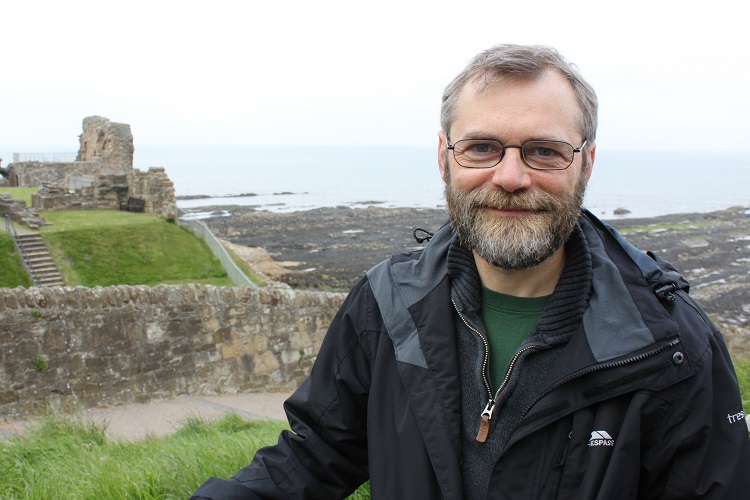World-leading primatologist elected Fellow of the British Academy

One of the most influential cognitive primatologists in the world, from the University of St Andrews, is elected as a Fellow of the prestigious British Academy today (Friday 19 July).
Josep Call, Professor of the Evolutionary Origins of Mind, from the School of Psychology and Neuroscience, has been made a Fellow of The British Academy, the voice for the humanities and social sciences.
Professor Call is among 76 distinguished scholars to be elected to the prestigious fellowship. He was Director of the Wolfgang Köhler Primate Research Centre of the Max Planck Institute for Evolutionary Anthropology in Leipzig from 2001 to 2017, during which time he became one of the most influential cognitive primatologists in the world. His research focuses on how primates learn, remember and use knowledge to solve technical (e.g., tool-use, spatial memory) and social problems (e.g., cooperation, communication, theory of mind), with a principal focus on the great apes (chimpanzees, bonobos, gorillas, orangutans), but also including children and monkeys.
The British Academy is a community of over 1400 of the leading minds that make up the UK’s national academy for the humanities and social sciences. Current Fellows include the classicist Dame Mary Beard, the historian Sir Simon Schama and philosopher Baroness Onora O’Neill. Historic Fellows include Dame Frances Yates, Sir Winston Churchill, Baroness Mary Warnock, C S Lewis, Seamus Heaney and Beatrice Webb.
As well as a fellowship, the British Academy is a funding body for research, nationally and internationally, and a forum for debate and engagement.
Professor Sir David Cannadine, President of the British Academy, said: “The British Academy has always recognised pioneering research in the humanities and social sciences, and 2019 is no exception. This year we have elected a particularly multi-skilled and versatile cohort of Fellows whose research crosses conventional academic boundaries.
“Whether it is climate conservation or the ageing society, the rise of artificial intelligence or social cohesion, our new Fellows’ wealth of expertise means the Academy is exceptionally well-placed to provide new knowledge and insights on the challenges of today. Their work has opened rich new seams of understanding and discovery, offering new perspectives on long-standing and emerging challenges alike.
“I extend my warmest welcome and heartiest congratulations to all our new Fellows, Corresponding Fellows and Honorary Fellows. I look forward to working with these outstanding scholars to build on the Academy’s excellent and ever-expanding record of achievement.”
Category Awards